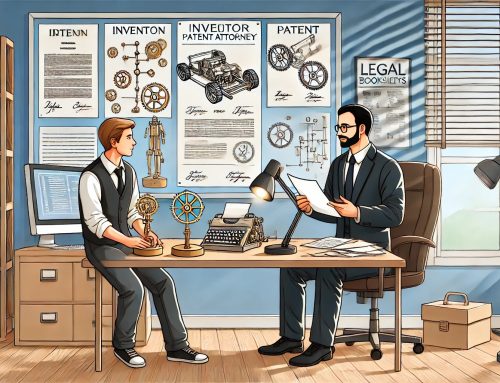In today’s world of technology and innovation, inventors and entrepreneurs need to protect their ideas and creations. One way to do this is by obtaining a patent.
According to the United States Patent and Trademark Office (USPTO), a patent is a “grant for exclusive rights to an inventor or assignee for a limited period of time in exchange for a full and complete disclosure of the invention.” In other words, a patent gives the owner the right to prevent others from making, using, selling, and importing the patented invention without their permission.
There are three main types of patents: utility patents, design patents, and plant patents. Utility patents cover new and useful inventions or discoveries, such as a new type of engine or a new drug. Design patents cover new, original, and ornamental designs for an article of manufacture, such as the design of a new type of chair. Plant patents cover asexually reproduced new varieties of plants.
Obtaining a patent can be a complex and time-consuming process. It involves conducting a thorough search to ensure that the invention is novel and non-obvious, and then preparing and filing a patent application with the USPTO. The application must include a detailed description of the invention and how it works, as well as any relevant drawings or diagrams.
Once the application has been filed, it will be reviewed by a patent examiner to determine if it meets the requirements for a patent. This process can take several years. If the application is approved, the inventor will receive a patent grant and will be able to enforce their rights against any unauthorized use of their invention.
There are several benefits to obtaining a patent. First and foremost, it provides legal protection for the inventor’s ideas and creations. This can be especially important for small businesses and startups, as it can help them to secure funding and build their brand. In addition, a patent can also serve as a valuable asset that can be licensed or sold to others.
In conclusion, obtaining a patent is an important step for inventors and entrepreneurs looking to protect their ideas and creations. While the process can be complex and time-consuming, the benefits of legal protection and the potential for financial gain make it well worth the effort.
References:
- United States Patent and Trademark Office. (n.d.). What is a patent? Retrieved from https://www.uspto.gov/patents-getting-started/patent-basics/what-patent
- United States Patent and Trademark Office. (n.d.). Types of patents. Retrieved from https://www.uspto.gov/patents-getting-started/patent-basics/types-patents








